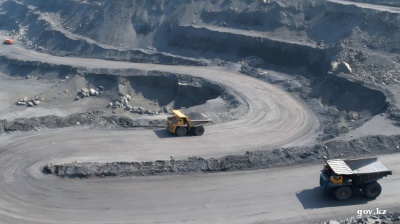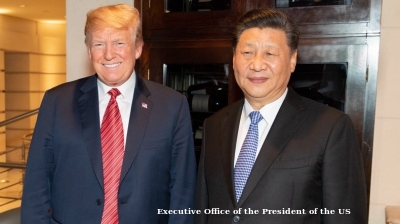EU-mediated negotiations with the leaders of Serbia and Kosovo aimed at improving their relations failed to achieve progress on September 14. EU foreign policy chief Josep Borrell said after meetings with Serbian President Aleksandar Vucic and Kosovan Prime Minister Albin Kurti that it had not been “possible to bridge the differences today”.
The EU has been working for years to resolve the conflict between Serbia and Kosovo, which unilaterally declared independence from Serbia back in 2008. However, despite an apparent breakthrough earlier this year when the two countries’ leaders verbally endorsed a comprehensive plan to mend their relations, the situation has deteriorated sharply since late spring.
Speaking after meetings with Kurti and Vucic, Borrell blamed the failure of the talks on Kosovo’s rejection of a compromise proposal.
The proposal sought to reconcile the demands of the two sides by allowing work on the political aspects of normalisation sought by Kosovo and the establishment of the Association/Community of Serb Municipalities in northern Kosovo, which was Serbia’s priority, to run in parallel.
“[T]oday, I tried with Prime Minister Kurti and President Vucic to find solutions and a way forward based on our proposal. Unfortunately, after quite a long meeting, Prime Minister Kurti was not ready to move forward and start a credible process towards establishing the Association/Community. He insisted instead on formalising de facto recognition as the first step,” Borrell said, according to a transcript published by the European Union External Action Service.
“I have to say, President Vucic accepted the European Union’s proposal for the implementation of the agreement. He came with another proposal, but finally he accepted our proposal.
“We tried hard, but unfortunately, it was not possible to bridge the differences today,” Borrell concluded.
Speaking to journalists after the talks, Vucic also blamed Kurti for the failure to progress, attributing it to the Kosovan prime minister’s refusal to accept the compromise proposal. Meanwhile, Kurti blamed the failure on the Serbian side.
“It was another failed meeting, which was disappointing,” Ilva Tare, non-resident senior fellow at the Atlantic Council’s Europe Centre, told bne IntelliNews.
“It’s a clear sign that there are a lot of obstacles to overcome in the dialogue and there are big compromises that both sides should agree on before moving forward with the EU-led dialogue process. Unfortunately the current format of the dialogue looks clearly ineffective.”
No de-escalation
Borrell also announced that there had been no advances in the efforts to alleviate the tensions stemming from the April local elections in northern Kosovo, which led to the violence in May.
In the aftermath of the disputed polls, which resulted in the election of ethnic Albanian mayors as Serbs boycotted the vote, Serb protesters clashed with security forces, including Nato-led KFOR peacekeepers, resulting in injuries to 93 soldiers.
Borrell said that Kosovo's efforts to de-escalate tensions through new elections were significantly below international expectations. He emphasised the need for the mayors to step down.
While the violence has subsided, the situation remains tense in Serb-dominated northern Kosovo, and Pristina has come under heavy international pressure to take further steps towards de-escalation. This included so-called punitive measures imposed on Kosovo by the EU, while the US has also scaled back its co-operation with Pristina.
Opportunity lost
The failure of the latest round of negotiations comes after progress earlier in the year raised hopes that a breakthrough might be imminent.
An 11-point normalisation agreement was verbally accepted, though not signed, by Vucic and Kurti back in February. In March, a marathon session between the two leaders in Ohrid, North Macedonia, mediated by EU officials, resulted in their verbal acceptance of the implementation annex of the agreement, though again the document was not signed.
Speaking on September 14, Borrell stressed the lack of progress on the commitments made in Ohrid.
“Six months later, only three elements have been addressed … this is very regrettable, and it speaks volumes about the parties’ true commitment to normalisation of relations – or rather the absence of it. The absence of commitment,” he said.
Neither country can progress towards EU accession until their relations are normalised. At present Kosovo is unable to even become an EU accession candidate, as it is not recognised by five EU member states.
Tare warned that the two countries risk missing their chance to progress towards EU accession given the upcoming elections in both the EU and the US.
“The windows of opportunity for both Kosovo and Serbia are closing with the upcoming election in the US next year, and elections in the European Union,” she said. “The attention of both the administrations and diplomatic officials will not be the same as it has been this year, especially in the last six months after the agreement in Ohrid when there was great optimism. Now we are again in another deadlocked situation.”
News

Trump Administration striving to strike critical minerals deal with Kazakhstan
Pushing for US firm to win rights to develop major tungsten deposits.

Trump and Xi to meet in Busan, South Korea
The meeting comes after weeks of uncertainty over whether the encounter would take place. A trade dispute flared earlier this month when Beijing expanded export curbs on rare‐earth minerals, prompting the US to threaten additional tariffs.

Russia will remain defiant against US sanctions pressure, Putin claims
The sanctions come at a time when Russia’s two largest energy buyers, China and India, have shown signs of reducing their oil imports from Russia.





